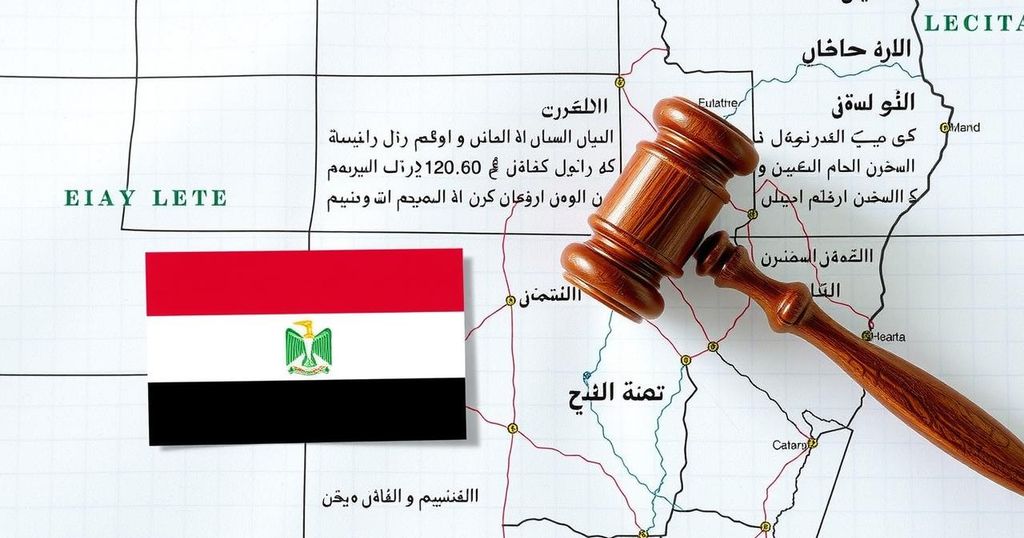Egypt’s Proposed Criminal Procedure Code: A Path to Repression or Reform?

Egypt’s parliament seeks to approve a draft amendment to the 1950 Criminal Procedure Code, facing strong opposition from civil society and human rights organizations. Critics argue the proposal fails to address issues of arbitrary detention and reinforces the power of prosecutors. The legislation reflects ongoing governmental repression and a lack of genuine reform intended to safeguard individual rights.
This week, Egypt’s parliament expedited the approval of a proposed draft bill intended to amend the 1950 Criminal Procedure Code. The proposal has drawn significant backlash from various civil society groups, including the Lawyers’ Syndicate, the Journalists’ Syndicate, Human Rights Watch, political entities, and independent experts from the United Nations. Critics assert that the bill has been largely formulated behind closed doors and rushed through a parliamentary process dominated by pro-government members before the current session concludes. Authorities are urged to consider the voices of the Egyptian populace and civil society instead of hastily enacting the legislation.
The existing Criminal Procedure Code has resulted in judges and prosecutors holding individuals in pretrial detention for extended periods without adequate court hearings or substantiated evidence of misconduct. It fails to provide proper definitions and penalties for crimes such as torture and enforced disappearance, tools which have been exploited by the government under President Abdel Fattah al-Sisi to suppress dissent. Since 2013, numerous critics and opponents of the regime have faced arbitrary detention, prosecution, and in some cases, death while in custody.
A preliminary review of the new draft bill reveals a lack of meaningful reform, as it primarily enhances the authority of prosecutors over judges while maintaining the unchecked powers of security forces. Despite assurances from officials, including President al-Sisi, aimed at addressing the abuses inherent in pretrial detention practices, the draft only marginally reduces the allowed duration for such detentions. It also fails to align with Egypt’s international obligations regarding detention practices, allowing for continued discretionary power that enables lengthy detentions without judicial scrutiny.
Moreover, the draft bill continues the troubling practice of “recycling” charges against detainees, which facilitates their prolonged incarceration. It significantly undermines the principles of a fair trial by expanding the use of a contentious videoconference system that further isolates detainees. Widespread dissent against this legislation illustrates the resilience of Egyptian civil society, which persists even amid severe repression. This draft raises concerns about the government’s intentions to address the critical issues surrounding political repression and the broader crises regarding political and economic rights in Egypt.
The article discusses the recent developments surrounding a proposed revision of Egypt’s Criminal Procedure Code, which has been met with substantial opposition from various segments of civil society. The existing law has been criticized for facilitating the arbitrary detention of many individuals without proper judicial recourse. The background highlights the ongoing struggle for basic rights and the role of the judicial system under the current government, emphasizing the importance of reform for political and civil liberties.
In summary, the proposed amendments to the Criminal Procedure Code in Egypt do not adequately address the ongoing issues of arbitrary detention and lack of fair trial standards. The persistent opposition from civil society highlights a crucial need for reform that genuinely respects human rights and the legal process while reflecting the concerns of the Egyptian people. The current trajectory suggests a continuation of repressive practices, raising serious doubts about the authorities’ commitment to improving political and economic rights within the nation.
Original Source: www.hrw.org








